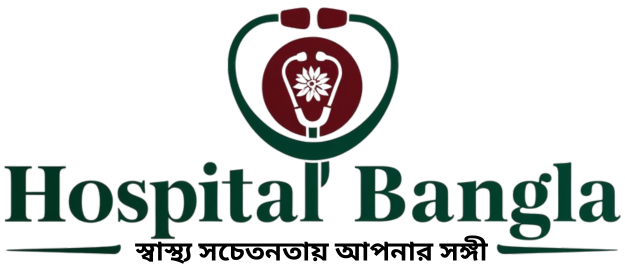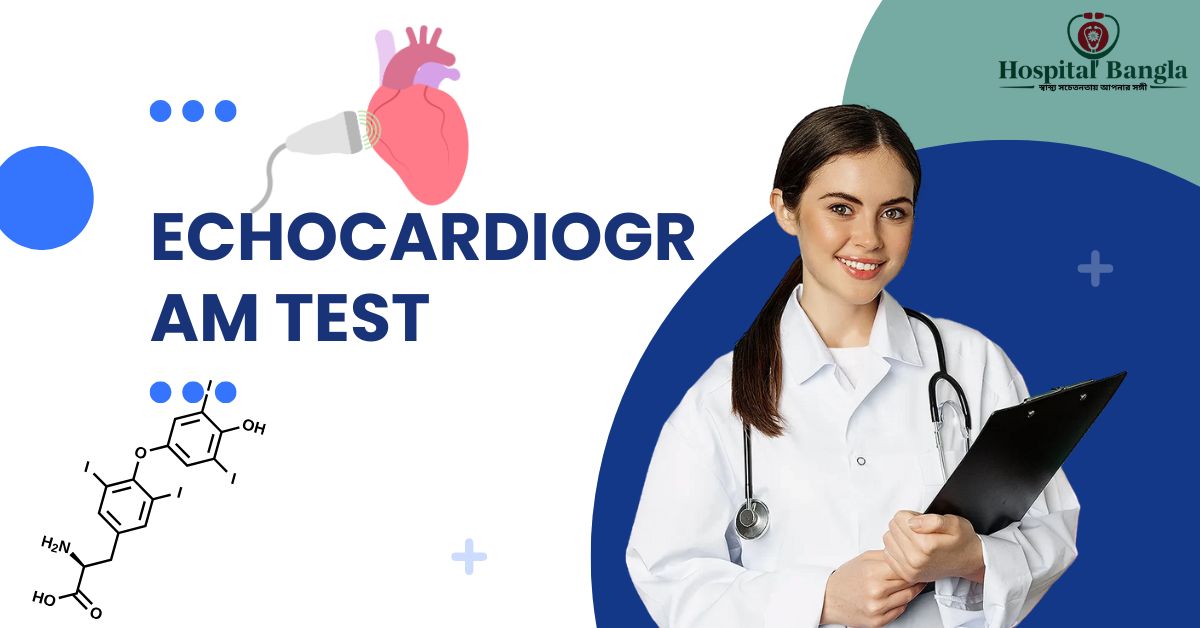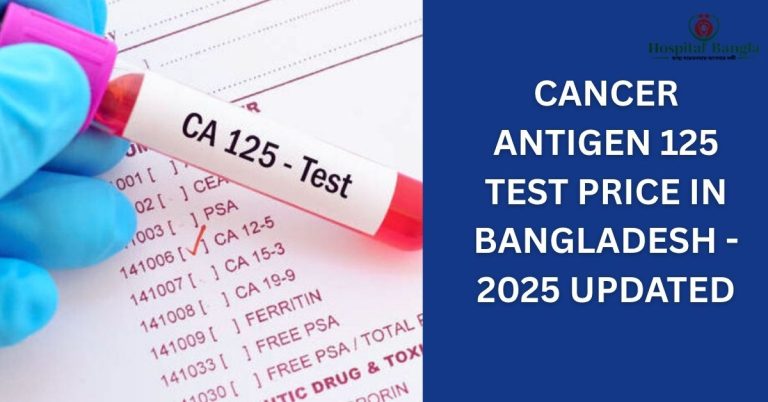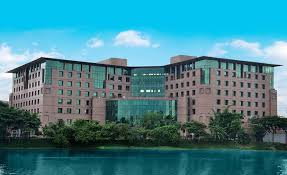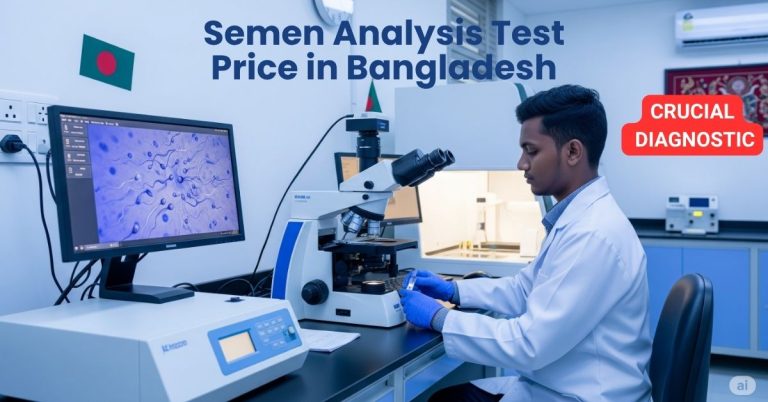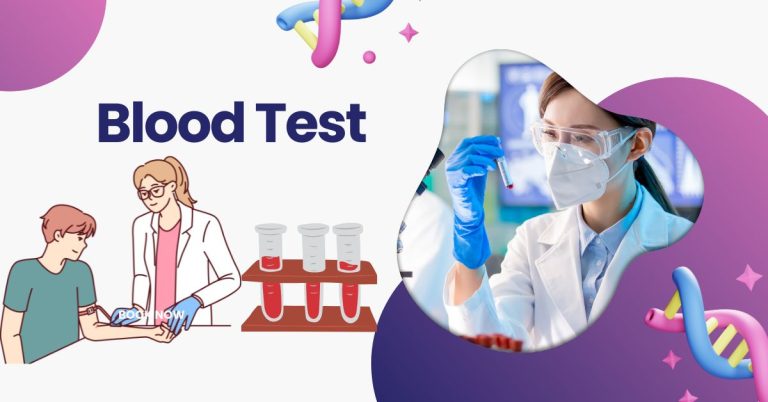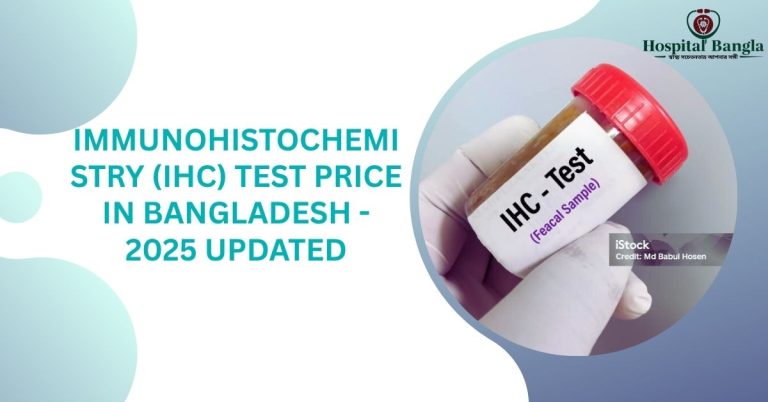Echocardiogram Test Price in Bangladesh: 2025 Updated
An echocardiogram test, commonly referred to as an echo test (ইকো টেস্ট), is a non-invasive ultrasound procedure that uses high-frequency sound waves to create detailed images of the heart. This test is essential for evaluating the heart’s structure and function, including its chambers, valves, and blood flow. It plays a critical role in diagnosing conditions such as heart valve diseases, cardiomyopathy, pericardial effusion, and congenital heart defects. It also helps monitor the effectiveness of treatments for heart conditions and assess heart function before surgeries. In Bangladesh, the Echocardiogram Test Price in Bangladesh typically ranges from 1,500 to 10,000 BDT, with government hospitals offering more affordable options compared to private facilities. Knowing these costs helps patients make informed healthcare decisions. Visit HospitalBangla.com for the latest price updates.
What is an Echocardiogram Test?
An echocardiogram is a specialized ultrasound that produces real-time images of the heart, allowing doctors to assess its structure and function. The test uses a handheld device called a transducer, which emits sound waves that bounce off heart tissues and create detailed visuals. These images reveal the size, shape, and movement of the heart’s chambers and valves, as well as blood flow patterns.
Types of Echocardiograms
- Transthoracic Echocardiogram (TTE): The most common type, where the transducer is placed on the chest.
- Transesophageal Echocardiogram (TEE): A more detailed test involving a transducer inserted into the esophagus for clearer images.
- Stress Echocardiogram: Conducted during physical activity or with medication to evaluate heart function under stress.
- Doppler Echocardiogram: Measures blood flow through the heart and blood vessels.
What It Measures
The test evaluates:
- Ejection Fraction: The percentage of blood pumped out with each heartbeat.
- Heart Chamber Size: To detect enlargement or abnormalities.
- Valve Function: To identify leaks or narrowing.
- Blood Flow: To check for blockages or abnormal patterns.
Clinical Significance
Echocardiograms are crucial for diagnosing conditions like:
- Heart valve diseases (e.g., mitral valve prolapse).
- Cardiomyopathy (thickened or enlarged heart muscle).
- Pericardial effusion (fluid around the heart).
- Congenital heart defects.
- Heart failure or damage from a heart attack.
Alternative Names
The test is also known as a cardiac ultrasound, heart ultrasound, or simply echo.
When is an Echocardiogram Test Recommended?
Doctors may recommend an echocardiogram for various reasons, including:
- Symptoms of Heart Issues: Chest pain, shortness of breath, dizziness, fainting, or irregular heartbeats may indicate heart problems requiring evaluation.
- Diagnosis of Heart Conditions: The test helps confirm diagnoses like heart valve disorders, cardiomyopathy, or congenital defects.
- Monitoring Treatment: For patients with known heart conditions, echocardiograms track treatment progress or disease progression.
- Pre-Surgery Assessment: Before heart or major vascular surgeries, the test assesses heart function to ensure safety.
- Screening High-Risk Individuals: Those with risk factors like high blood pressure, diabetes, high cholesterol, or a family history of heart disease may need screening.
The results guide doctors in creating tailored treatment plans, making the test a cornerstone of cardiac care.
Echocardiogram Test Preparation
Preparing for an echocardiogram is straightforward, ensuring a smooth experience:
- Fasting: Typically, no fasting is required for a standard TTE. For Doppler studies or TEE, fasting for 4-6 hours may be advised to improve image clarity.
- Medications: Continue regular medications unless your doctor advises otherwise. Inform your doctor about all medications, supplements, or herbal products, as some may affect results.
- Clothing: Wear loose, comfortable clothing. You may need to remove jewelry or metal objects that could interfere with imaging.
- Procedure Details: A technician applies a gel to your chest and moves a transducer to capture images. The process is non-invasive, painless, and takes 30-60 minutes, depending on the test type.
- Duration: Most tests are completed within an hour, with results often available immediately or within a few days.
Echocardiogram Test Price List in Government Hospitals in Bangladesh
Government hospitals in Bangladesh offer echocardiograms at lower costs, making them accessible for many patients. Below is a table of estimated prices for 2025, based on available data:
| Hospital Name | Location | Echocardiogram Test Price (BDT) | Contact Number |
|---|---|---|---|
| Bangabandhu Sheikh Mujib Medical University (BSMMU) | Shahbag, Dhaka | 2,000 – 6,000 | +88029666810 |
| Dhaka Medical College Hospital (DMCH) | Shahbag, Dhaka | 2,000 – 8,000 | +880241863000 |
| BIRDEM General Hospital | Shahbag, Dhaka | 3,000 | +880241060501 |
| National Institute of Cardiovascular Diseases (NICVD) | Mohakhali, Dhaka | 1,500 – 5,000* | +88029882230 |
| National Heart Foundation of Bangladesh (NHFBD) | Mirpur, Dhaka | 2,000 – 10,000 | +880258051355 |
| Chittagong Medical College Hospital (CMCH) | Chittagong | 1,500 – 4,000* | +88031630179 |
| Rajshahi Medical College Hospital (RMCH) | Rajshahi | 1,500 – 4,000* | +880721774240 |
*Note: Prices marked with an asterisk are estimated based on general trends for government hospitals, as specific data was unavailable. Contact hospitals directly for confirmation.
Echocardiogram Test Price List in Private Hospitals in Bangladesh
Private hospitals and diagnostic centers in Bangladesh often use advanced equipment, which may result in higher costs. Below is a table of estimated prices for 2025:
| Hospital/Diagnostic Center | Location | Echocardiogram Test Price (BDT) | Contact Number |
|---|---|---|---|
| United Hospital | Gulshan, Dhaka | 2,000 – 10,000 | +880288361234 |
| Apollo Hospital | Gulshan, Dhaka | 2,000 – 8,000 | +880288361234 |
| City Hospital | Dhanmondi, Dhaka | 1,500 – 5,000 | +88029666810 |
| Evercare Hospital | Bashundhara, Dhaka | 2,000 – 6,000 | +880258900000 |
| Square Hospitals | Panthapath, Dhaka | 3,000 – 8,000* | +8809610010616 |
| Labaid Cardiac Hospital | Dhanmondi, Dhaka | 2,500 – 7,000* | +88029666810 |
| Popular Diagnostic Centre | Dhanmondi, Dhaka | 2,000 – 6,000* | +8809613787801 |
| Ibn Sina Diagnostic & Consultation Centre | Dhanmondi, Dhaka | 900 – 2,650 | +88029106625 |
| National Hospital Chattogram & Sigma Lab | Chittagong | 2,000 – 5,000* | +8801855677500 |
| Green Life Hospital | Dhanmondi, Dhaka | 2,000 – 6,000* | +88029612345 |
*Note: Prices marked with an asterisk are estimated based on general trends for private hospitals, as specific data was unavailable. Contact facilities for the latest pricing.
Understanding Echocardiogram Test Results
Interpreting echocardiogram results is key to understanding your heart health:
- Normal Results: Indicate proper heart chamber size, valve function, and blood flow, with an ejection fraction typically between 50-70%.
- Abnormal Results: May show enlarged chambers, thickened heart walls, valve leaks, or reduced pumping ability, suggesting conditions like heart failure or valve disease.
- Factors Affecting Results: Body size, lung conditions, or previous surgeries can impact image quality. Technician expertise also plays a role.
- When to Consult a Doctor: If results show abnormalities or you experience new symptoms like chest pain or shortness of breath, consult a cardiologist promptly.
Frequently Asked Questions
How accurate is an Echocardiogram Test?
Echocardiograms are highly accurate for assessing heart structure and function, with accuracy depending on technician skill and image quality. Limitations may occur in patients with thick chest walls, where alternative tests like TEE may be recommended.
How long does it take to get the results?
Results are often available immediately, as images are interpreted in real-time. A detailed report from a cardiologist may take 1-3 days.
Is the test covered by insurance?
Many insurance plans in Bangladesh cover echocardiograms if medically necessary. Check with your provider for specific coverage details.
How often should one get an Echocardiogram Test?
Frequency depends on your health. Healthy individuals may not need regular tests, but those with heart conditions may require annual or more frequent testing as advised by a doctor.
What is the difference between an Echocardiogram and an Electrocardiogram (ECG)?
An echocardiogram uses ultrasound to visualize heart structure, while an ECG records electrical activity to assess heart rhythm. Both are complementary but provide different insights.
Are there risks associated with an Echocardiogram?
Standard TTEs are safe and non-invasive, with no radiation exposure. TEE may carry minor risks, such as throat discomfort, but complications are rare.
Can I eat before the test?
For most echocardiograms, eating is allowed. However, fasting may be required for Doppler studies or TEE, as advised by your doctor.
Conclusion
The echocardiogram test is a vital diagnostic tool for assessing heart health, widely available across Bangladesh in both government and private facilities. With prices ranging from 1,500 to 10,000 BDT, patients can choose based on budget and facility reputation. Government hospitals like BIRDEM and BSMMU offer cost-effective options, while private centers like United Hospital provide advanced technology. Comparing Echocardiogram Test Prices in Bangladesh ensures you get quality care at an affordable rate. Always consult your healthcare provider to determine if this test is right for you and verify prices with hospitals for the most accurate information.
